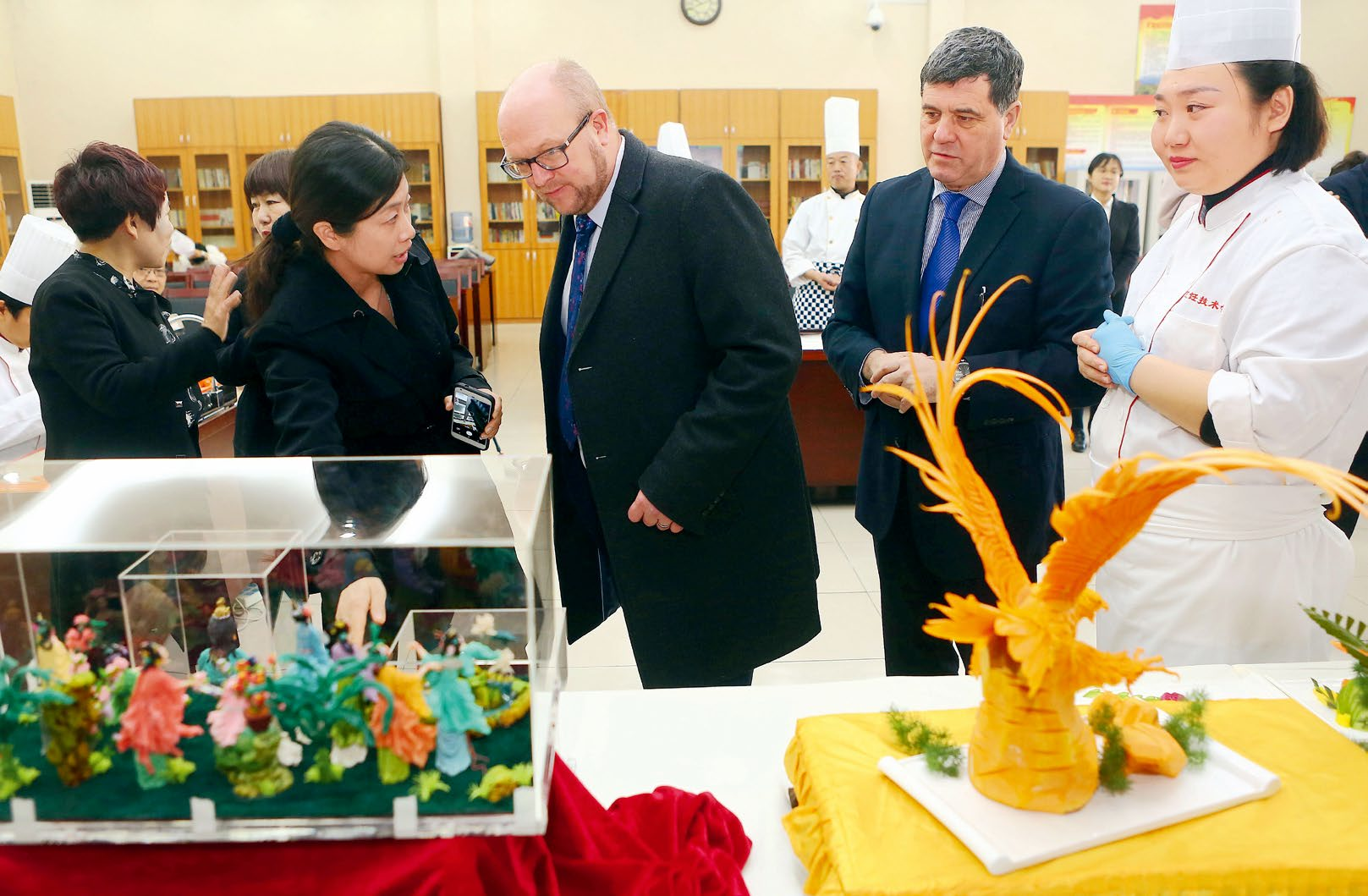
On Dec. 14, 2016, the Chichester College from the U.K. and the Tianjin Second Commercial School sign a cooperation agreement under which a Luban Workshop of cooking and other related majors will be set up in the U.K., allowing more foreigners to learn about China's cooking skills. [Photo by Tong Yu/China News Sercive]
Luban Workshop, named after Lu Ban, a structural engineer known as the "father of carpentry" in China who lived during the Spring and Autumn Period (770–476 BCE), is a prominent brand in China's cultural and people-to-people exchanges with other countries. It was first established by the Tianjin Bohai Vocational Technology College (TBVTC) to help cultivate technical and skilled talents in countries along the Belt and Road, who are familiar with Chinese technology, understand Chinese crafts, and know about Chinese products. It represents a major innovation for the internationalization of China's vocational education and shares excellent Chinese programs of vocational education with the world.
Industrialization plays a vital role in national economic development. The first two industrial revolutions in history enabled European and American countries to first complete industrialization before the mid-20th century. Through capital accumulation via global colonial expansion, they quickly grew into developed countries. After World War II, Japan, by introducing advanced technology from Europe and America, gradually established its own industrial system. By the 1980s, Japan had achieved a significant trade surplus relying on high-quality industrial products. Following Japan's example, countries in East and Southeast Asia realized economic leaps through an export-oriented manufacturing economy.
China followed a similar path. Towards the end of the 1970s, China initiated the reform and opening-up, replacing its planned economy with a socialist market economy. This made it possible for the largest developing country in the world to gradually grow from a backward agricultural state into a global power of manufacturing. Labor-intensive industry creates lots of jobs. China's huge population made it possible for it to become the "world's factory."

